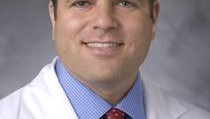
The Identification of pathways Associated with Doxorubicin Resistance in a Murine Model of soft Tissue Sarcoma Using Whole-Genomic Approaches
From the first line of investigation that the Maria Garcia Estrada Foundation and the Foundation James and Nancy Heinz Family at Duke University, in collaboration with the Duke comprehensive Cancer Centre for research in specific sarcoma, researchers have found that the way forward in their investigation is to have more financial support and more parallel studies.
For this reason, The Maria Garcia Estrada Foundation, has signed last October 1st, 2008, a parallel study by researchers Richard F. Riedel and David Kirsch for a total budget of $25,000 which has been funded by the Maria Garcia-Estrada Foundation ($12,500) and the Family James and Nancy Foundation ($12,500).
This study will have a duration of 1 year.
RESEARCHER
Richard F. Riedel and David Kirsch MD
RESEARCH
PROJECT NAME:
The Identification of Pathways Associated with Doxorubicin Resistance in a Murine Model of Soft Tissue Sarcoma Using Whole-Genomic Approaches
DATE:
1 october 2008-october 2009
PLACE:
Duke University Medical Center, Durham, NC
PERSONS RESPONSIBLE
Co-Investigators: Richard F. Riedel MD and David Kirsch MD, PhD
INTRODUCTION
Soft tissue sarcomas are a rare, heterogeneous group of disorders with variable biologic behavior and outcomes. With greater than 50 histological subtypes and an overall incidence of approximately 10,000 cases/year in the U.S., the diagnosis of sarcoma poses enormous challenges for physicians caring for these patients.1,2 A further understanding of the mechanisms associated with the pathogenesis of sarcomas as well as an elucidation of the key biological pathways associated with therapeutic response within individual subtypes is needed to improve the outcomes for these patients
TARGET OF THE PROJECT
Treatment options for patients with soft tissue sarcoma are of limited scope and effectiveness. Novel therapeutic strategies are needed. Whole-genomic approaches, such as gene expression profiling, may be utilized to gain insight into the mechanisms associated with therapeutic response. Reliance on a novel mouse model of soft tissue sarcoma will allow for the functional validation of in vitro results and provide the framework on which future human trials are based.
AVAILABLE FUNDS
Total budget: 25.000$

